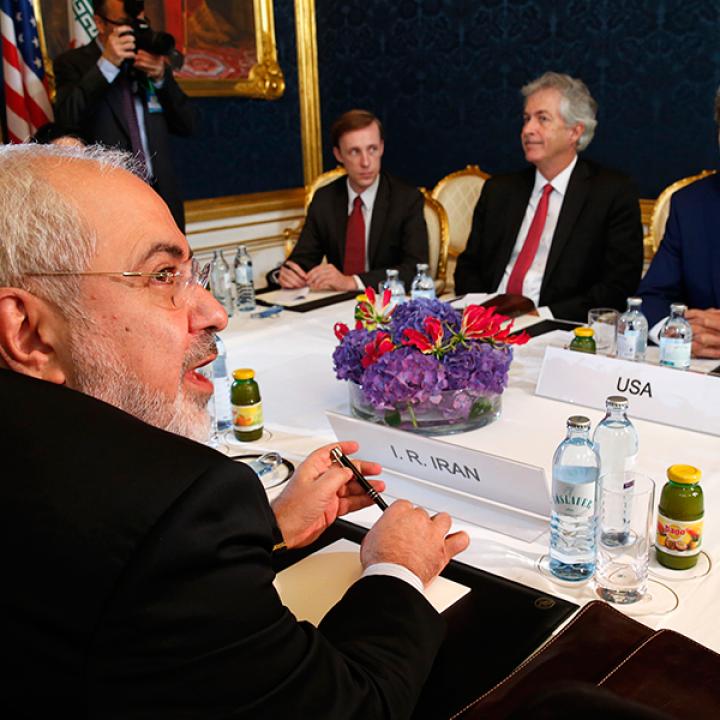
- Policy Analysis
- Articles & Op-Eds
One Year After the Nuclear Deal: Is Iran Moderating?

While Western officials should remain true to their longstanding support for human rights and civil liberties in Iran, they should nevertheless be cautious about their ability to shape the country's internal dynamics, focusing instead on influencing its regional and foreign policies through a mixture of pressure and engagement.
The following is an excerpt from a working paper presented as part of the "U.S.-Iran Relations at a Crossroads" conference at the Baker Institute. To read the full version, download the PDF or visit the Baker Institute website.
In Rouhani and his team, especially Foreign Minister Zarif, US officials face Iranian counterparts who have proven willing to engage with Washington transactionally when it is in Iran's interests to do so, in contrast to their domestic foes for whom anti-Americanism often trumps more pragmatic considerations. This not only made the conclusion of the JCPOA and the release of the various American captives possible, but has led US officials to ponder the possibilities for broader engagement with Iran.
There is scant evidence, however, that such engagement is "changing" Iran or its policies, or that it should therefore be pursued by Washington as an end in itself. Nor can US officials afford to approach engagement with Iran purely transactionally, bearing in mind that Iranian officials in consenting to engage diplomatically are doing so to further their own interests, which tend to deviate significantly from if not stand in stark opposition to those of the United States and its allies in the region. Given the strategic challenge that Iran poses to US interests in the Middle East -- in its support for terrorism and subversive non-state actors, threat to freedom of commerce and navigation in regional waterways, pursuit of a nuclear weapons capability, and other destabilizing pursuits -- the American approach to diplomacy with Iran cannot simply consist of a series of transactional engagements but should instead be nested in a broader strategy to counter the challenges posed by Iran and advance a stabilizing regional agenda.
Indeed, the paradox of American engagement with Iran is that Rouhani's approach, if successful, could result in an Iran that eventually emerges strengthened but whose regional strategy is unchanged, in the same way that the US opening to Beijing, for all of its benefits, also helped facilitate China's transformation into a highly capable rival. While the US partnership with China was justified by the more urgent need to confront the Soviet Union, however, the strategic rationale for empowering Iran is far less clear. Some argue that doing so would offer a form of balancing and that a more confident Iran could ultimately result in a more stable region; however, such an outcome would require Iran to abandon an approach to regional security which arises not only from external but internal factors, such as the preeminence of irregular "revolutionary" institutions like the IRGC over conventional military institutions. Others argue that the greater threat is Sunni jihadism, represented by the likes of ISIS, necessitating cooperation with Iran against a common enemy. This notion, however, ignores the role that Iran's regional activities -- and the toppling of Iran's most notable regional rival -- have played in contributing to the virulent sectarianism that nourishes ISIS.
On balance, it does appear as though Iran is changing, but the nuclear deal is more a product of than a cause of that change. Nor does it appear that change in Iran will follow a clearly "good" or "bad" path with respect to American interests. While US and other Western officials should pay close attention to Iran's internal dynamics and should remain true to their longstanding support for human rights and civil liberties, they should nevertheless be cautious about their ability to shape the country's internal dynamics and focus instead on influencing its regional and foreign policies through a mixture of incentives and disincentives, utilizing a range of tools from pressure to engagement in service of a broader regional strategy...
Baker Institute Issue Brief



